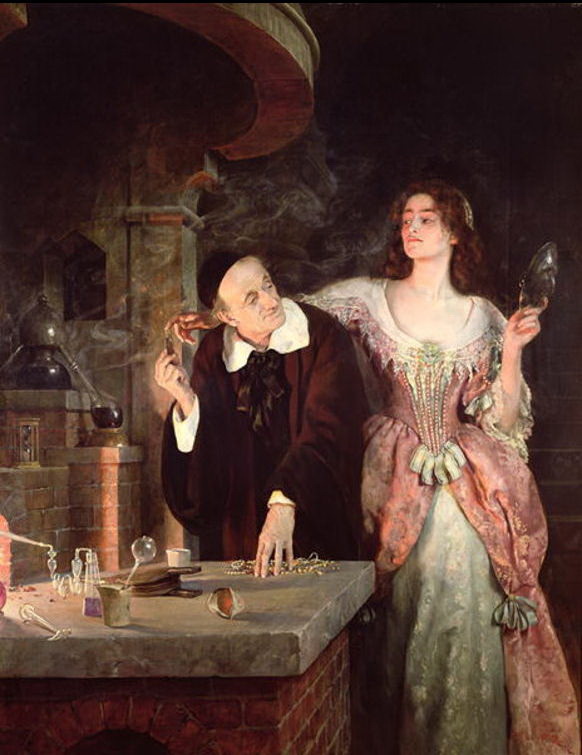Aylmer – The Birthmark

The potential discussion topics about “The Birthmark” are numerous, but none are as captivating as Aylmer himself. He’s a vile character who disrespects the metaphysical world and his egotistical experiments rightfully lead to his downfall.
To summarize, Aylmer is a brilliant scientist who’s wife, Georgiana would be the most beautiful woman in the world were it not for a small insignificant birthmark on her left cheek. When he offers to remove her imperfection, it seems a legitimate means to an end — after all if he possesses the skill; why wouldn’t he do away with it?
The reader does not discover Aylmer’s true nature until further into the story. It is only when the subject of the birthmark comes into play that his negative characteristics become visible. He wants a perfect wife and begins the long and arduous operation to remove the benign birthmark. This is not about Georgiana, but Aylmer and his own ambitions.
As he continues his quest to remove the unsightly mark, at whatever the cost, he becomes more desperate. It is as if his whole existence now relies on the eradication of the birthmark. He has the skill and in his own words surmises,
“A philosopher who should go deep enough to acquire power would attain too lofty a wisdom to stoop to the exercise of it.”
Georgiana is pushed to the point where she feels she has nothing to live for, should the blotch remain,
“Life is but a sad possession to those who have attained precisely the degree of moral advancement at which I stand…methinks I am of all mortals most fit to die.”
Aylmer finally produces an anecdote that destroys the birthmark but kills Georgiana in the process. One might expect the reader to feel sad and cheated at such an ending, but Aylmer’s failure is only fortunate in that he learns that life is more precious than perfection.
